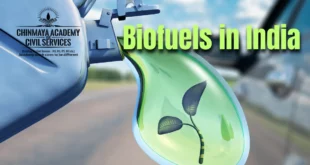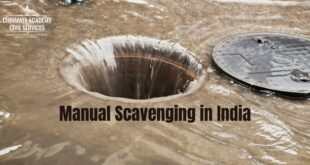- Breast cancer, by the government’s estimate, is the leading cause of cancer in women in India. However, it does not qualify as a matter of “national” or “extreme” urgency in the Health Ministry’s reckoning, suggest court filings as part of an ongoing case in the Kerala High Court.
- The case involves Saroja Radhakrishnan (now deceased), diagnosed with a type of breast cancer called ‘Luminal A’, which is among the most invasive and make up the bulk of invasive breast cancer cases. In her petition, in January this year, she argued that one of the drugs prescribed for her condition, Ribociclib, was “too expensive and unavailable at an affordable price” because it was patented and therefore
- India’s generic drug makers, who routinely manufacture cheaper versions, were legally prohibited from making a version of the drug. Ribociclib is manufactured by the multinational pharmaceutical firm Novartis.
Most prevalent cancer
- The Indian Council of Medical Research (ICMR), in a report this month, said that 100.5 out of 1,00,000 women were being diagnosed with breast cancer.
- From the approximately 1,82,000 cases of breast cancer at present, the report has projected cases to rise to 2,50,000 by 2030. There was no break-up of how many of these were Luminal A cancer.
- According to the World Health Organization, there were 23 lakh women diagnosed with breast cancer and 6,85,000 deaths globally. At the end of 2020, there were 78 lakh women alive who were diagnosed with breast cancer in the past five years, making it the world’s most prevalent cancer.
- The petitioner said that she and her husband had a joint income of ₹74,400 a month whereas expense on Ribociclib cost her ₹58,140.
- Adding other medications, the cost of medication was well above what she could afford and therefore the “unaffordable price of the medicine” impacted her right to health, which is a fundamental right under Article 21.
- India’s patent laws permit any drug, patented or non-patented, to be manufactured and made available at an affordable price, via a “compulsory licence”, if the government is satisfied that a large section of people need the drug but are unable to access it, or if there is a “national emergency” or a health crisis that the absence of the drug is precipitating.
- In June this year, the Kerala High Court directed the Department for Promotion of Industry and Internal Trade (DPIIT), a Commerce Ministry body and one of the respondents in the case, to “consider compulsory licensing” of Ribociclib.
- The DPIIT decides on the pricing of drugs and following a meeting, that included experts from the National Cancer Institute, the Drug Controller General of India and the Ministry of Health, decided that conditions necessary to issue a compulsory licence “were not fulfilled”.
- The DPIIT drew on comments from the Health Ministry which said that Ribociclib was among 42 drugs on which the “trade margin” was capped at 30% and there also weren’t “claimants” who were demanding that it be domestically manufactured.
SOURCE: THE HINDU, THE ECONOMIC TIMES, PIB
 Chinmaya IAS Academy – Current Affairs Chinmaya IAS Academy – Current Affairs
Chinmaya IAS Academy – Current Affairs Chinmaya IAS Academy – Current Affairs



